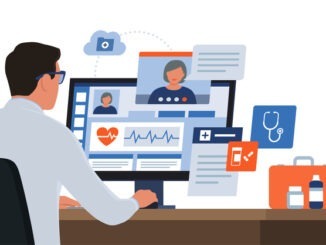
In today’s healthcare landscape, where patient care and practice efficiency are paramount, practice managers need to stay ahead of the curve in adopting innovative digital solutions and streamlining operations. Delve into the world of ePROMs and their role in reshaping patient care.
CREDIT: This is an edited version of an article that originally appeared on Nursing Times
The landscape of cancer treatments and diagnoses is rapidly evolving, demanding a proactive approach from healthcare providers. In the UK, cancer incidence increased by 4% in the decade leading up to 2018, with systemic anti-cancer therapy (SACT) treatments rising by 6-8% annually. This surge puts tremendous pressure on oncology departments. Furthermore, a shortage of clinical oncologists and specialist cancer nurses compounds the challenge.
The conventional structure of oncology outpatient clinics may struggle to keep up with the demands of reviewing patients receiving SACT, which includes chemotherapy, immunotherapy, and targeted therapies. A telling example is Nottingham University Hospitals NHS Trust (NUH), where oncology outpatient appointments grew by an average of 2,500 each year over a six-year span leading up to 2021.
In response, the NHS’s long-term plan in 2019 aimed to alleviate the strain on services by proposing a reduction of face-to-face outpatient appointments by one-third, advocating for telephone or virtual clinics. The onset of the Covid-19 pandemic prompted a shift in patient care delivery, presenting a unique opportunity to tackle immediate and long-term challenges through digital solutions.
Empowering patients: The role of ePROMs
Patient empowerment is at the heart of modern healthcare, and patient-reported outcome measures (ePROMs) play a pivotal role. These measures allow patients to directly report treatment side-effects and disease symptoms, placing them in the driver’s seat of their well-being. While ePROMs have been used in the NHS for surgical patients, current literature underscores the need for greater patient involvement in their care. The process of answering tailored questionnaires also enhances patient awareness of their symptoms, contributing to an improved overall experience.
ePROMs can be incorporated into digital questionnaires, enabling the collection of patient information through apps or web-based portals. For cancer patients, the impact of ePROMs has been substantial, leading to increased health-related quality of life, reduced hospital and emergency department visits, and improved quality-adjusted survival. Moreover, these measures enhance communication between patients and clinicians while facilitating effective symptom management.
The digital clinic experience
At Nottingham University Hospitals NHS Trust (NUH), the implementation of digital clinics using ePROMs-based questionnaires has been a success without compromising the patient experience. This innovative approach offers a range of advantages including reducing unnecessary clinic visits, creating cost efficiencies and easing clinical workloads.
Using standardised questionnaires ensures consistent and repeatable patient reviews, regardless of the reviewing clinician. It provides a comprehensive overview of patient symptoms, including those they might overlook. Patients are encouraged to record all symptoms without fear of wasting the clinician’s time. It also allows them to consider their symptoms and consult with family members.
A pragmatic approach to implementation
Introducing digital reviews for patients receiving systemic therapies demands a pragmatic approach. Success is more likely when targeting patients on long-term treatments, particularly if their clinicians actively engage in the recruitment process. Immunotherapies and targeted oral therapies are well-suited for ePROMs clinics.
Educating patients about digital clinic possibilities early in their treatment journey fosters acceptance and understanding. An inclusive approach towards patient groups is vital. For instance, patients undergoing head and neck cancer treatments often face persistent side-effects and increased healthcare needs. These patients may struggle to engage with traditional clinics due to speech difficulties caused by treatment. Electronically completed questionnaires offer a more accessible means for them to communicate their symptoms.
The future: Challenges and innovations
Successful implementation of digital clinics necessitates close coordination with specialist consultant-led teams, particularly for managing complex symptoms. Challenges during the development of digital clinics, such as technical issues, have been resolved with the support of dedicated digital technology teams.
Recruiting patients and engaging staff can be challenging. The role of the ePROMs Clinical Nurse Specialist (CNS) has been instrumental in addressing these challenges. The ePROMs CNS fosters strong working relationships, offers education, and provides a platform to address concerns raised by clinical teams.
Moving forward, the use of digital clinics at NUH has empowered more CNSs and non-medical prescribers to play a direct role in delivering SACT treatments to an ever-growing patient population. Future developments will focus on expanding the range of suitable patient groups, training staff in digital systems, and minimising potential risks for patients in this new way of working.
The adoption of digital clinics and ePROMs represents a significant leap in the transformation of cancer care. Practice managers play a vital role in facilitating and supporting these innovations, ensuring that patients receive the best possible care. As the healthcare landscape evolves, embracing these innovative tools will empower GP practices to provide more efficient, patient-centric care.



Be the first to comment